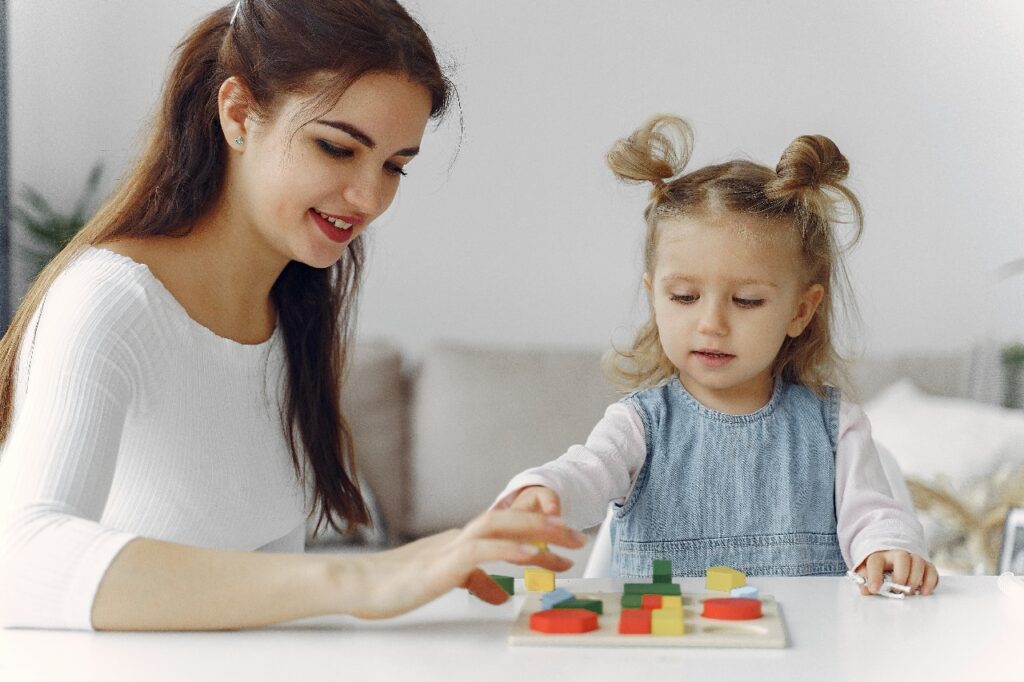Mathematics plays a crucial role in our daily lives, from counting money at the store to measuring ingredients for a recipe. As parents, we can help our preschoolers develop strong foundational math skills by integrating math into their everyday activities. In this blog post, we will explore fun and practical ways to build early math skills through these routine interactions.
1. Counting Everything
Counting is one of the fundamental math skills for preschoolers. Encourage your child to count everything they see. Whether it’s the number of toys on the floor, steps on the staircase, or apples on the kitchen table, counting is an excellent way to introduce numbers and quantity.
Tip: Use objects like building blocks or coins for hands-on counting practice.
2. Sorting and Classifying
Sorting objects by size, color, shape, or any other attribute helps children understand the concept of categories and sets. You can sort laundry, silverware, or even a collection of their toys.
Tip: Make sorting a game by setting a timer and challenging your child to finish before it goes off.
3. Measuring and Comparing
Measurement is another essential math skill. Involve your child in activities that require measurement, such as baking cookies or tracking their height on a growth chart. They can learn about length, weight, and volume through these experiences.
Tip: Ask questions like, “Which bowl is bigger?” or “How many cups of flour do we need?”
4. Patterns and Sequences
Patterns are everywhere, from the stripes on a shirt to the sequence of traffic lights. Help your child recognize and create patterns using everyday objects. Start with simple patterns like ABAB (e.g., red-blue-red-blue) and progress to more complex ones.
Tip: Look for patterns in nature during walks, such as leaves on trees or rocks on the ground.
5. Shape Hunts
Shapes are a fundamental aspect of geometry. Go on a “shape hunt” around the house or while out for a walk. Encourage your child to identify and name different shapes they come across, like circles, triangles, and squares.
Tip: Create a collage with cut-out shapes from old magazines or colored paper.
6. Time-Telling Moments
Introduce the concept of time by talking about daily routines and events. Discuss what happens in the morning, afternoon, and evening. Use analog clocks to show the movement of time hands.
Tip: Create a simple visual schedule with pictures to help your child understand the concept of time and routines.
7. Math Games
Turn math into playtime with board games and card games that involve counting, adding, or matching. Games like “Chutes and Ladders” or “Go Fish” can be both fun and educational.
Tip: Choose age-appropriate games that align with your child’s current math abilities.
Incorporating math into everyday activities not only helps your child build essential skills but also fosters a positive attitude toward math. Keep in mind that each child learns at their own pace, so be patient and make learning enjoyable. By integrating math into your daily routines, you’re setting the stage for a strong math foundation that will benefit your child throughout their education and life. Happy math learning!

